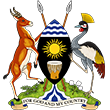![]()
WTO/UNCTAD/ITC
WTO NEWS
Commemorating 30th anniversary of the Marrakesh Agreement
The Marrakesh Agreement establishing the World Trade Organization was signed by 123 countries on 15 April 1994, leading to the birth of the WTO on 1 January 1995. Over the past 30 years, the WTO has helped to bring about a major expansion in global trade, with the objective of raising living standards, increasing employment and promoting sustainable development. This portal highlights some of the WTO's achievements over the last three decades and the events planned to mark its 30th anniversary.
https://www.wto.org/english/thewto_e/30y_e/30y_e.htm
AID FOR TRADE (https://www.wto.org/english/tratop_e/devel_e/a4t_e/aid4trade_e.htm)
Aid for Trade helps developing countries, and particularly least developed countries, trade. Many developing countries face a range of supply-side and trade-related infrastructure obstacles which constrains their ability to engage in international trade.
The WTO-led Aid-for-Trade Initiative encourages developing country governments and donors to recognize the role that trade can play in development. In particular, the initiative seeks to mobilize resources to address the trade-related constraints identified by developing and least-developed countries.
The World Trade Organization (WTO) is the only international organization dealing with the global rules of trade. Its main function is to ensure that trade flows as smoothly, predictably and freely as possible.
GLOBAL TRADE RULES
"Global rules of trade provide assurance and stability. Consumers and producers know they can enjoy secure supplies and greater choice of the finished products, components, raw materials and services they use. Producers and exporters know foreign markets will remain open to them.
This leads to a more prosperous, peaceful and accountable economic world. Decisions in the WTO are typically taken by consensus among all members and they are ratified by members’ parliaments. Trade frictions are channelled into the WTO’s dispute settlement process, where the focus is on interpreting agreements and commitments and how to ensure that members’ trade policies conform with them. That way, the risk of disputes spilling over into political or military conflict is reduced.
By lowering trade barriers through negotiations among member governments, the WTO’s system also breaks down other barriers between peoples and trading economies.
At the heart of the system – known as the multilateral trading system – are the WTO’s agreements, negotiated and signed by a large majority of the world’s trading economies, and ratified in their parliaments.
These agreements are the legal foundations for global trade. Essentially, they are contracts, guaranteeing WTO members important trade rights. They also bind governments to keep their trade policies transparent and predictable which is to everybody’s benefit.
The agreements provide a stable and transparent framework to help producers of goods and services, exporters and importers conduct their business.
The goal is to improve the welfare of the peoples of the WTO’s members".

